Looking for a hobby that engages you with nature and is good for the environment. Paynter’s Mill resident Mike Fisher found his calling by raising butterflies and releasing them when the timing is right.
There are more than 17,500 species of butterflies in the world and about 750 in the U.S. According Good Living, butterflies contribute to the planet in numerous ways. They pollenate plants in gardens; they are an indicator of a healthy environment because garden that attracts butterflies will also bring native bees and birds; and they can make people happy. Naturalist and veteran broadcaster Sir David Attenborough adds to that list. He says spending time in nature – even just watching butterflies in a home garden – is also good for our mental health.
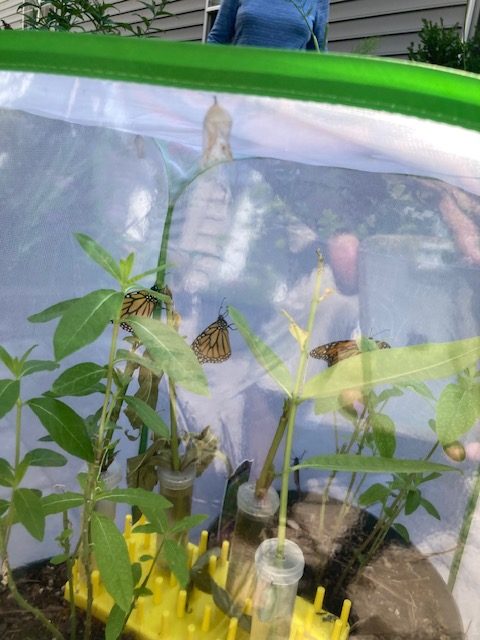
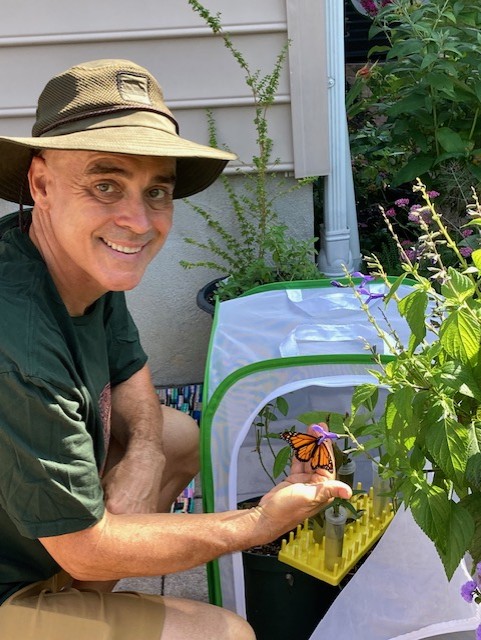
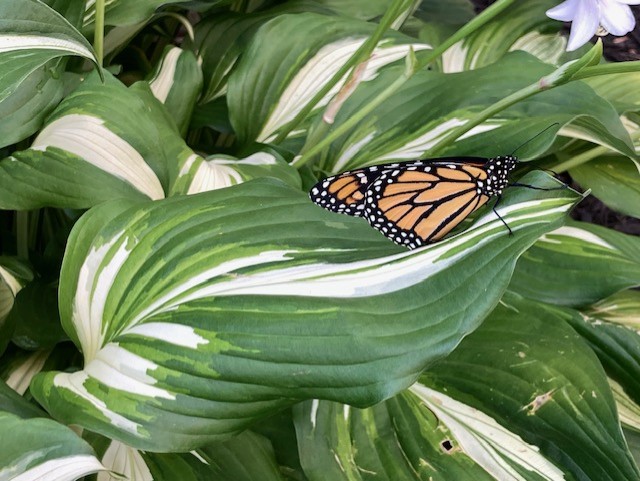
Fisher started with Zebra Swallowtails because they use the pawpaw tree as its host plant. Pawpaw trees are native to most of eastern North America. This species of tree gets to be only 15-20 feet tall. They are “browse resistant”, meaning deer find their leaves unpalatable, which leaves saplings to continue to grow. “Knowing that pawpaws are fairly unusual, I wanted to introduce the Zebra Swallowtails to areas where they are native but aren’t common.
Fisher likes the swallowtails because they have a dramatic look and extended tails. The Zebra Swallowtail is his favorite. “They are challenging to acquire and challenging to handle, but, as he says, “few things in life that are worthwhile are easy.:
Depending on the time of year, temperature, humidity, and food availability, these butterflies take about a month to go from egg to butterfly.
When a caterpillar stage of a butterfly reaches full size, they form into a chrysalis or pupa. Inside, they are undergoing a transformation or metamorphosis. The parts we recognize as a butterfly are beginning to form. The adult butterfly emerges from the chrysalis with its soft wings folded about its body.

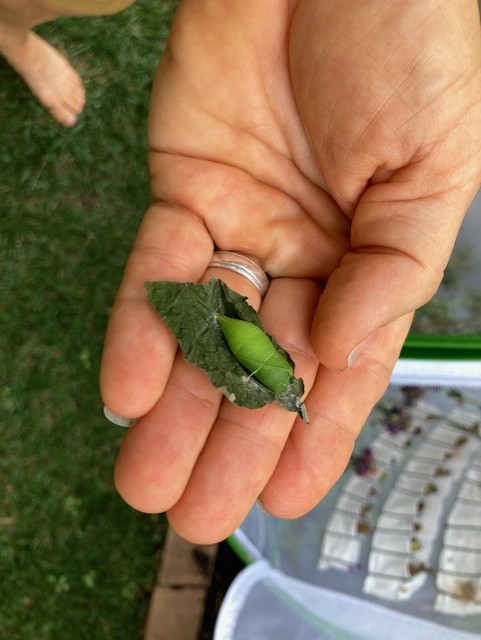
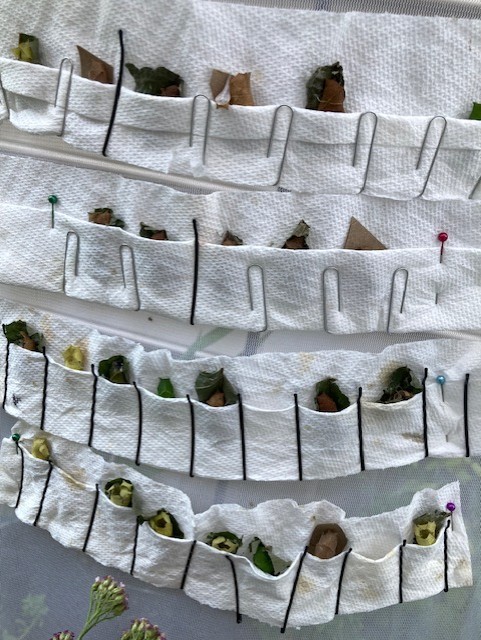
When I started researching butterflies a bit more, I learned that only three to five percent of the eggs survive to form a butterfly due to a plethora of predators and other natural barriers. Some of the biggest predators of the eggs and caterpillars are spiders and ants, as well as parasitic wasps and birds.
Monarchs are threatened by pesticides, climate change, ongoing suburban sprawl, as well as fragmented and poisoned habitats as they navigate their way across the continent. They need a helping hand from the government, businesses, and concerned individuals.
When Fisher heard about the plight of the Monarchs, he decided to add the species to his family. He added eight varieties of milkwood around his townhouse to help feed them and he goes out every morning looking for eggs to retrieve before wasps get them.
He eventually added Eastern Black Swallowtails to the mix partially because they are easy to raise. He bought a dill plant and a parsley plant for the yard, and another for the butterfly enclosure. These butterflies are voracious eaters, so he relies on neighbors for clippings of their herbs.
“I give the butterflies food and a place to feed their young,” he said. “I plant a lot of good nectar plants since butterflies are great pollinators. They will swarm your garden if you give them the right food, so knowing the host plant for the type of butterfly you want to raise is critical.” Fisher added that a butterfly will only lay eggs on plants that their babies will be able to eat.
Fisher’s hobby has grown, as well as his knowledge and skill, over his years raising and releasing butterflies. What hobby suits your interests and makes a difference? Consider what you might learn more about and you never know where you might end up!

Mary Jo Tarallo spent much of her career in public relations with various non-profits and spent 40 years involved with the ski industry as a journalist, public relations director for a national trade association and as executive director of the Learn to Ski and Snowboard initiative. Prior to her ski industry involvement she worked for the Maryland International Center in Baltimore and United Way of Central Maryland. She won a Gold Award for TV programming for a United Way simulcast that starred Ophrah Winfrey. She has been cited for her work by numerous organizations. Mary Jo grew up in Baltimore, attended the University of Maryland and Towson University, lived in Washington, DC for 21 years and has been a full time resident of Rehoboth Beach and Milton since May 2019.

I was a monarch butterfly raiser before moving to Delaware. Unfortunately I’ve had no luck raising these wonderful creatures even though I’ve planted several varieties of milkweed in my yard.
Would you like us to share your message with Mike–and see if he has any tips?